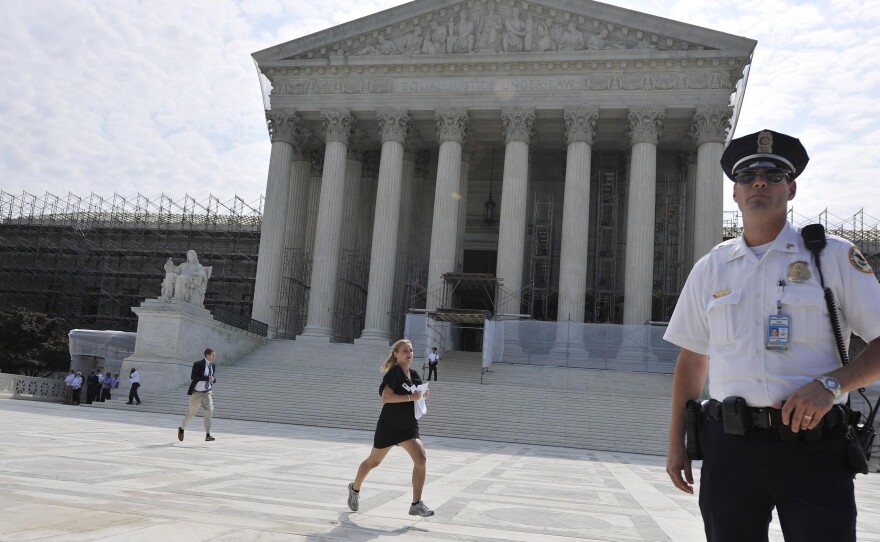By a 5-to-4 decision, the Supreme Court has struck down a key provision of the 1965 Voting Rights Act that establishes a formula to identify states that may require extra scrutiny by the Justice Department regarding voting procedures.
The decision focuses on section 4 of the Act.
Writing for the majority, Chief Justice John Roberts writes that the decision "in no way affects the permanent, nationwide ban on racial discrimination in voting found in [Section] 2. We issue no holding on [Section] 5 itself, only on the coverage formula. Congress may draft another formula based on current conditions."
Legal scholar Jeffrey Toobin tells CNN that the court has effectively said "times have changed so much that the formula [for deciding which states deserve extra scrutiny] is invalid."
And by striking Section 4, he said, "in practice, the other section of the law – Section 5 — is dormant."
As the AP explains it, the Supreme Court has essentially decided that section 5 of the act — the part that requires certain states to have changes to voting procedures OKd by the federal government — cannot be enforced until Congress "comes up with a new way of determining which states and localities require federal monitoring of elections."
The case, known as Shelby County v. Holder, involves the Voting Rights Act, which was renewed by Congress in 2006 for a period of 25 years. The petitioner, Shelby County, Alabama, argued that Section 5 of the VRA subjects them to a double standard and infringes on state sovereignty. Specifically, the plaintiff argued that Congress exceeded its authority under the Fourteenth Amendment guaranteeing equal protection and the Fifteenth Amendment covering voting rights and therefore violated the Tenth Amendment and Article IV of the constitution – both of which deal with state's rights.
Attorney General Eric Holder had argued that the restrictions, which cover nine southern states including Alabama and numerous counties in five other states, were necessary to keep them from returning to discriminatory practices.






